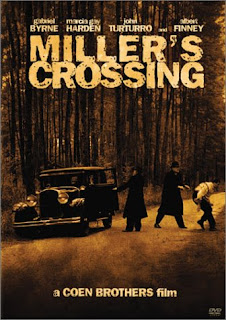Australia Hard Boiled "She's a blonde, thin, a bitch and a bloodsucker. She acts freaked out, you know? Goal she's really ice-cool. Know What We Call Her down here? "His head shook Hardy." White Meat. "
It is quite common to have a crime writer, referring to another well known author. It is even often a selling point on the back cover or on a banner affixed to the book: "Stronger than Patricia Highsmith," or "The book would have loved to write Henning Mankell!" .
I myself will give something to this facility, like others before me, publishers or journalists, professional critics and lovers of crime fiction to say Peter Corris that his style is reminiscent of Raymond Chandler. This was the case, at least for his early novels in the series featuring the "private" Cliff Hardy. But with nearly forty novels in this series since the first The Dying Trade published in 1980 and the last one to my knowledge, Deep Water, published this year, Peter Corris has had time to draw his own way.

However, the kinship with the style of Chandler is not just a veneer of marketing. The adventures of Cliff Hardy, the private Australian Sydney bear the clear mark of the hard-boiled novel: the narrative in first person, the lonely and cynical private, body and soul battered (he was a boxer, has fought in Malaysia, was a logger and investigator for insurance, is to say if he saw the green and not ripe), under realistic adventure without dead time, the dialogues without fuss, the treated plots. In short, punch and class.
There are, in Cliff Hardy, something of Philip Marlowe, Raymond Chandler, and perhaps more, of Lew Archer, Ross Macdonald. And even the urban Sydney odors Californian cities, the fictional San Angelo or the real Los Angeles of Marlowe or the imaginary Santa Teresa (which recognizes Santa Barbara), Lew Archer.
You'll wonder why so you could look on the novels by Peter Corris, it's just a private in an almost American Australian city almost U.S. too. To which I reply that, beyond this initial feeling of deja vu, these novels have a real personality, an Australian perspective. It feels like when Cliff Hardy's adventures lead him out of town, towards this outback where the harshness of nature has hardened men themselves. It is also noticeable in the portrait of Australian society, torn between conservatism and tolerance, equality and voracity,

White Meat (Pan Books edition, 1981, ISBN 978-0330270182 ), published in France under the title of White Flesh (editions Shores, Shores Collection Black, 1989, 264 pages, ISBN 978-2869302129) is the third novel in this series of Cliff Harding. If I chose to take it over another novel in the series as an example of the work of Peter Corris is firstly because I discovered shortly after its publication, at a time when I devoured indiscriminately Hammett, Chandler or Ross Macdonald, and secondly because I think it speaks to the unique world of Peter Corris. In this White Meat, Australian society is very present, and tensions between the ethnic components of this motley company are a cornerstone of this novel. From downtown Sydney to the Aboriginal community in the suburbs La Perouse Aboriginal boxers to Italian mobsters, to the young woman disappeared, the stage is set and the actors are ready. Shake very well the ingredients, let us add a detective that blows on the head never did give up an investigation, and that's a great cocktail for lovers of hard-boiled. Born
there will soon be thirty years from the imagination of Peter Corris who wanted to write the kind of novels he loved to read, Cliff Hardy is still there today. Almost to the surprise of its creator, who did not expect such longevity, and pleasure drives hard-boiled novel, which have is a master of the genre.
What I regret is that a talented director has not taken possession of this character there to bring to the screen. While the New Zealand director Chris Thompson has adapted his novel The Empty Beach (1985) film, but this film did rather poorly as we approached to Germany (Ein Toter weiß zuviel ) without reaching France.
lacks Peter Corris and Cliff Harding a "great film", as has been the case for Sam Spade by Dashiell Hammett (I think The Maltese Falcon, John Huston (1941), starring Humphrey Bogart), the Philip Marlowe, Raymond Chandler (Humphrey Bogart, again in The Big Sleep Howard Hawks in 1946) or Lew Archer by Ross MacDonald (Lew became Harper in the guise of Paul Newman in Harper Jack Smight in 1966). Perhaps it is too late, fashion is not really the films of "private".
Do not film, and therefore taking a novel.
* * * * *
- To learn more about the author and his work, visit the website Peter Corris .
* * * * *











